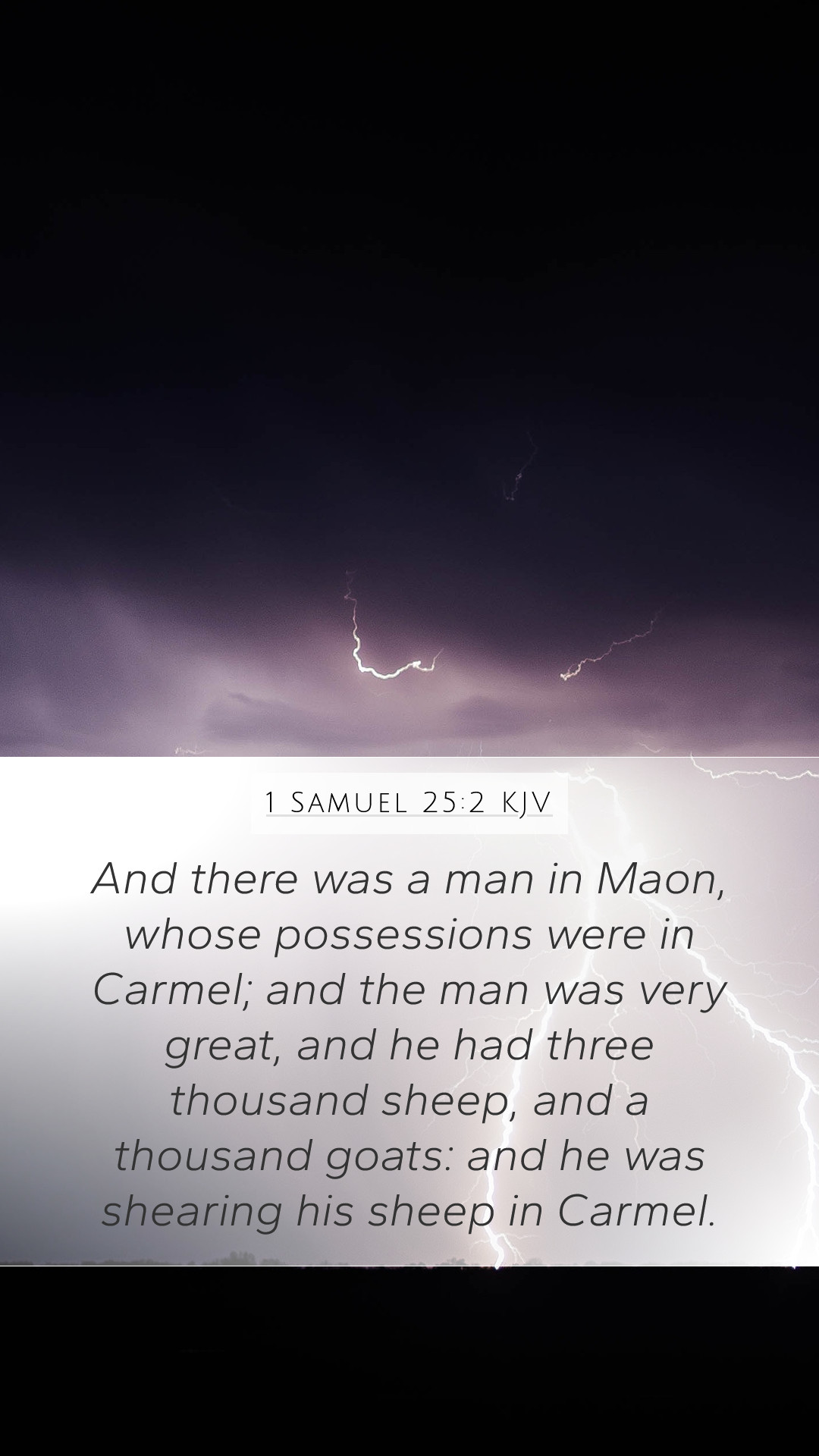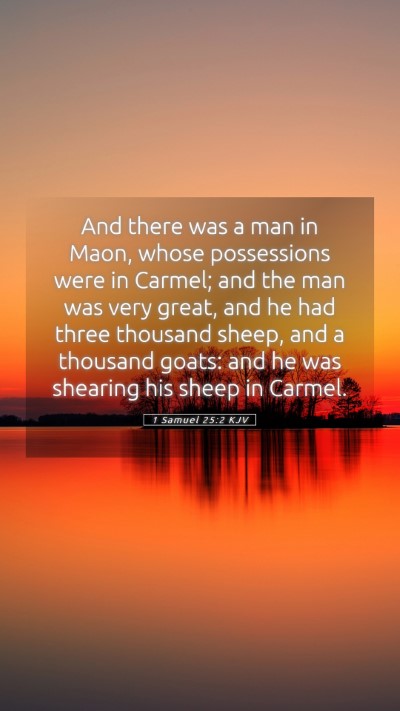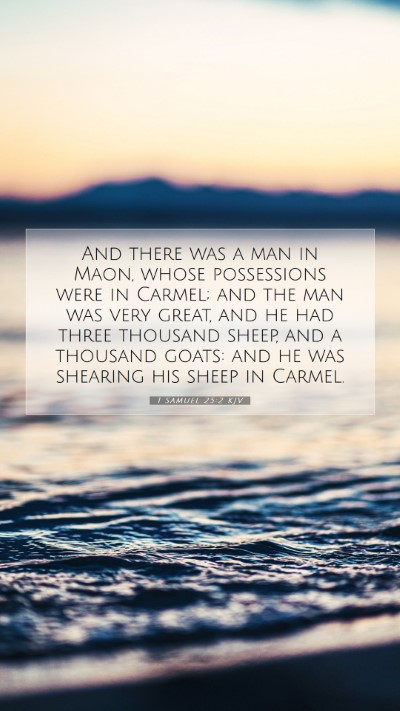Understanding 1 Samuel 25:2
1 Samuel 25:2: "And there was a man in Maon, whose possessions were in Carmel; and the man was very great, and he had three thousand sheep and a thousand goats: and he was shearing his sheep in Carmel."
Bible Verse Meaning
This verse introduces us to a significant character in the narrative, Nabal, a wealthy man who owned extensive livestock. The mention of his wealth and the specific details about his possessions establish his social standing and the agricultural lifestyle of the region. These details hold not only historical importance but also pave the way for understanding the interactions that follow in the story.
Historical Context
In the context of the Old Testament, livestock was a primary measure of wealth and success. The focus on Nabal’s sheep and goats indicates his prosperity. Understanding the agrarian culture of ancient Israel allows for deeper comprehension of the verse. The shearing season was an important time for shepherds, as it symbolized not only agricultural abundance but also a time for celebration and feasting.
Bible Verse Interpretations
Commentators such as Matthew Henry emphasize the moral and social implications of wealth. Nabal, though rich, is portrayed as unfriendly and harsh, which sets up a classical contrast between wealth and virtue. The cultural practices of hospitality, especially towards a leader like David, underscore the expectation that wealth should come with generosity.
Albert Barnes notes that the term 'great' concerning Nabal emphasizes not just his possessions but possibly his arrogance and self-importance. This would become pivotal in understanding his character, which leads to conflicts with David.
Adam Clarke provides insights into the geographical references and how they connect to the narrative’s unfolding events. The specific location of Carmel as a pastoral community heightens the narrative's tension, especially against the backdrop of the wilderness in which David and his men found themselves.
Applying Bible Verses to Daily Life
This verse, while historical, encourages reflection on the nature of wealth and morality. It prompts readers to consider how one’s social status and possessions should be balanced with generosity and kindness.
Consider how Nabal’s actions contrast with the expected virtues associated with his wealth. In contemporary discussions, this verse invites debates on social responsibility and philanthropy, challenging individuals to examine how societal expectations align with their personal values.
Bible Study Insights
- Character of Nabal: A man whose name means 'fool' in Hebrew, which foreshadows his actions throughout the narrative.
- Social Expectations: How wealth creates a social framework but does not define moral character.
- Cultural Practices: The significance of the shearing festival as a time of gathering and exchange.
Cross References
- Proverbs 11:28: "He who trusts in his riches will fall, but the righteous will flourish like foliage."
- Luke 12:15: "And He said to them, 'Take heed and beware of covetousness, for one's life does not consist in the abundance of the things he possesses.'
- James 2:5: "Listen, my beloved brethren: Has God not chosen the poor of this world to be rich in faith and heirs of the kingdom which He promised to those who love Him?"
Reflection and Conclusion
1 Samuel 25:2 serves not only as a narrative element but a foundation for larger themes about wealth, social responsibility, and morality in relationships. As personal reflections on the application of wealth and character arise from this verse, it questions the reader's own understanding of how they relate to material possessions in the context of social ethics. The commentary from historical and cultural perspectives enhances our biblical exegesis, emphasizing that every verse carries profound implications for our daily lives.


